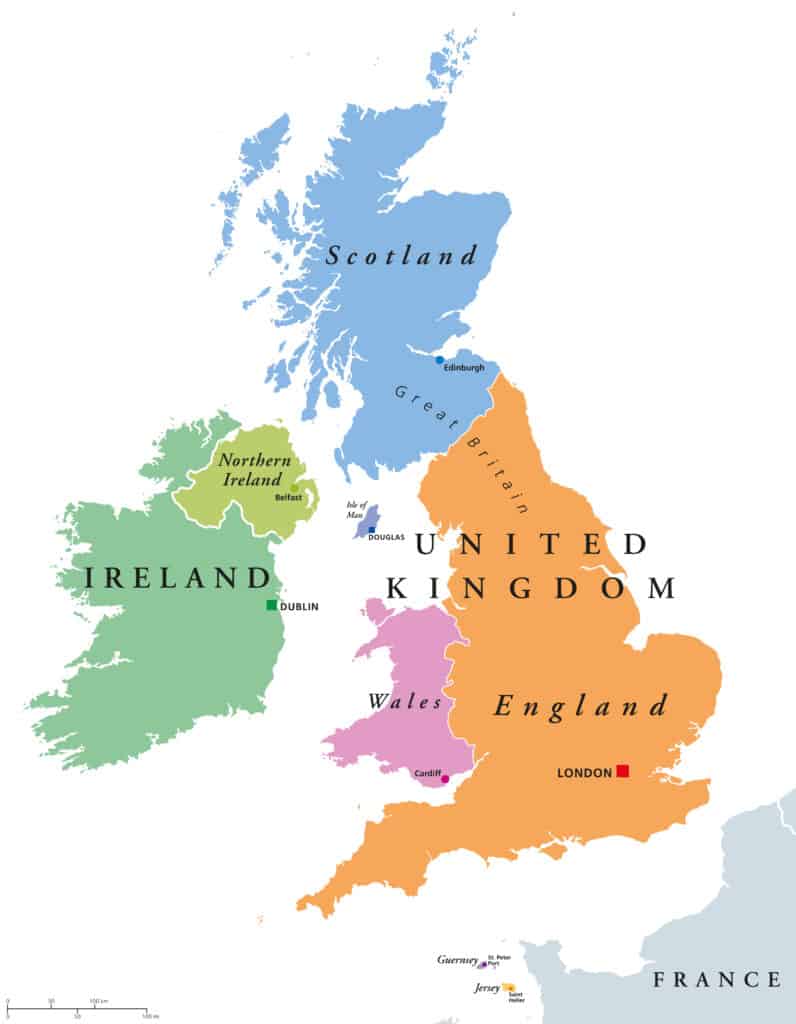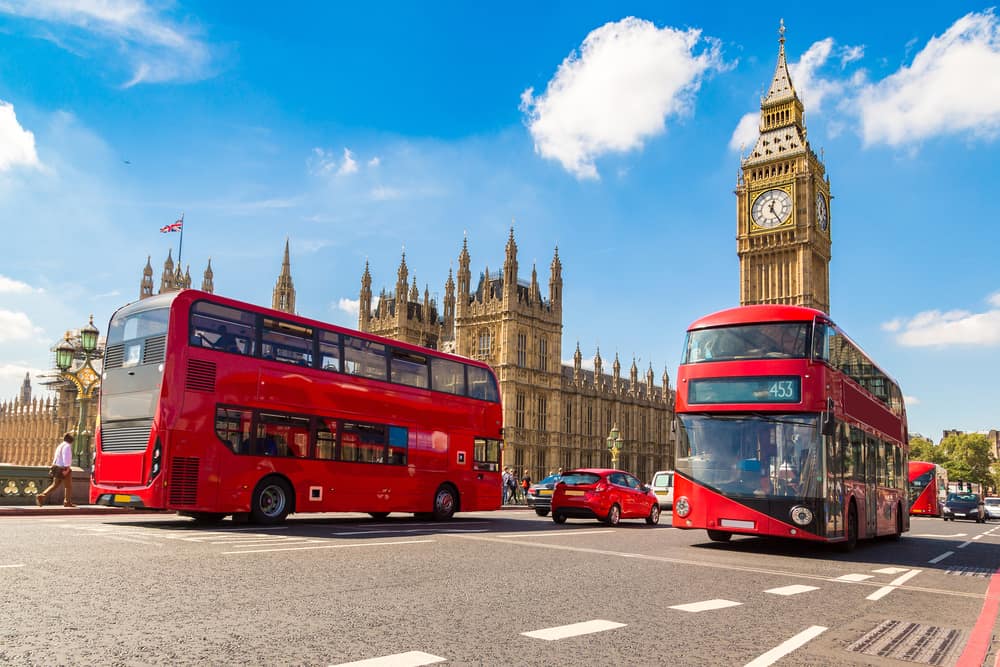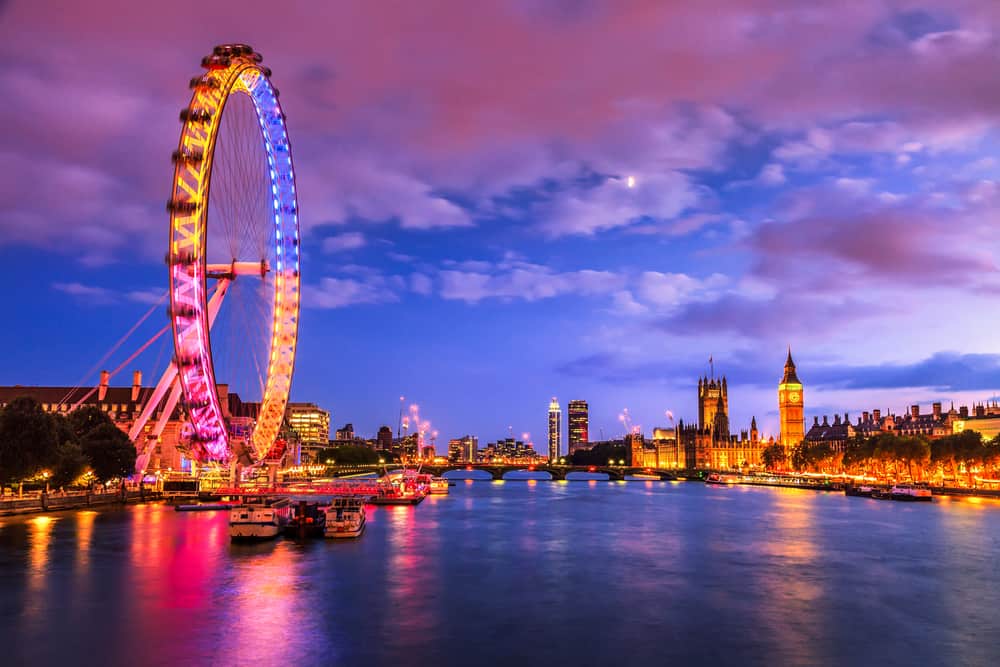
It is funny how such a simple question can be so controversial. Or you may not know that it is controversial and assume that the capital of both England and the United Kingdom is London, but is that correct?
The capital of England is accepted as being London. We are referring to Greater London rather than the much smaller City of London. Neither England nor the United Kingdom have any laws stating that any one settlement is the capital, so it is a de facto capital rather than a de jure one.
In the rest of the article, we are going to dig a bit deeper and uncover how London is or is not, depending on your perspective, the capital of England.
Where Is the Capital of England Located?

London is found in the southeast quadrant of England. It is built around the River Thames, which bisects the metropolitan area. London has an area of over 600 square miles.
Brief History of London

The first significant settlement as we would recognize one today at the site of London was built by the Roman Empire in the first century shortly after their invasion of Britain. It grew to an immense size and was of great strategic importance to the Romans until the dissolution of the Western Roman Empire’s grasp in the fifth century.
Over the course of the following half a millennium, London saw periods of decline and minor resurgence as it experienced influence and raids from Saxons, Danes, and Vikings.
Starting from the tenth century, London gradually stabilized and flourished, growing into the largest settlement in England once again within a hundred years.
In the eleventh century, English monarchs began noting London’s power and potential, and so began its political prominence and emergence as the capital of first the Kingdom of England and then the United Kingdom.
London continued to grow and develop throughout the second millennium. This rate increased dramatically from the eighteenth century, during which it expanded outward. The construction of multiple bridges over the Thames River allowed for what is now the southern half of London to catch up with the original settlement.
The Industrial Revolution led to yet another huge spike in growth for London, which claimed the status of largest city in the world between 1831 and 1925, covering the entirety of the Victorian era and largely defining it. Although London is no longer the biggest, it continues to be one of the most prominent cities in the world.
When Did London Become the Capital of England?

Because London was never officially made the capital of England by any law, it is difficult to give an exact date on which it became the capital. It was more of a gradual process.
In 1066, Harold Godwinson was crowned King of England at Westminster Abbey in London. Even though his reign ended the same year, this tradition of coronations at the site continues to this day.
William the Conqueror became King of England in the same year and built the Tower of London later in his reign. This castle briefly served as a royal residence.
His son and successor, William II, began the construction of what would become the Palace of Westminster in 1097. Although originally built in order to be a royal residence, this building currently houses Parliament. Both of these statuses worked to solidify London’s status as the capital of England and later the United Kingdom.
Why Is London the Capital of England?
London is accepted as the capital of both England and the United Kingdom because that is where the government is located. There is no law that states that London is the capital.
In spite of this, it is likely that London will remain the capital of England and the United Kingdom for the foreseeable future because it is also the country’s largest settlement. As of the 2021 census, more than 15% of the population of England live in London while about 13% of the population of the United Kingdom reside in the metropolis.
Best Places to Visit in London
London is a city that is wealthy not only in financial terms, but also in history, beauty, and diversity. You can find just about any attraction you can think of when visiting London, so you can create the trip you want – be it shopping, cultural, party, or simple relaxation.
We have, however, picked out three of the best places to visit in London for those who are interested in its status as England’s capital.
Palace of Westminster and Westminster Abbey: The two sites are across the road from one another, so you can easily get them in one go. Immerse yourself in not only the political history of London, but also current politics. The British Parliament still meets at the Palace of Westminster, meaning the significance of this building is not merely historical.
Tower of London: The castle that marked the start of Norman rule over England is one of the most famous sites of London. This iconic attraction is available to visit seven days a week and even includes eating and shopping facilities. Tickets are available at a reduced rate for children.
The London Eye: If you want to see a whole lot of London in a very short amount of time, the London Eye is your best bet. Take a “flight” up and around the wheel, seeing London and the Thames from incredible heights. You can also buy tickets that include other attractions, like a river cruise or Madame Tussauds, and have an even broader experience.
Conclusion
The capital of both the United Kingdom and England is widely considered to be London, even though there is no law that designates the metropolis as such.
We have learned today why London is considered the capital of England by looking at its history and understanding the important role that politics plays in this. We looked at how medieval kings began to favor London starting in the eleventh century and how the modern British Parliament is centered there now, making it a true capital.
